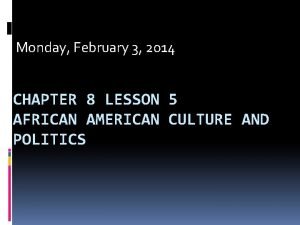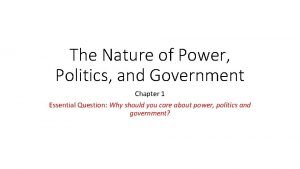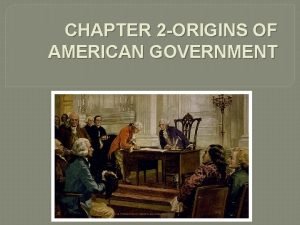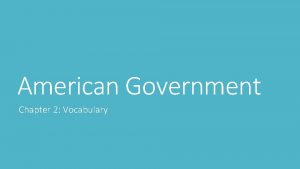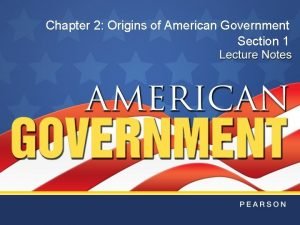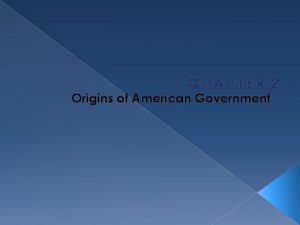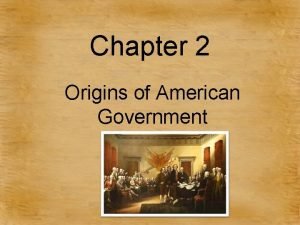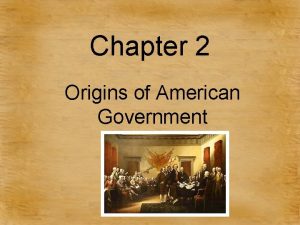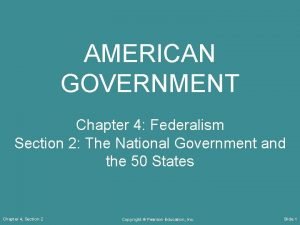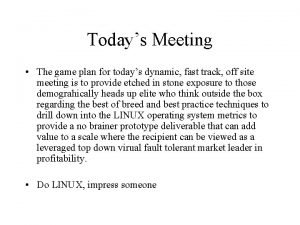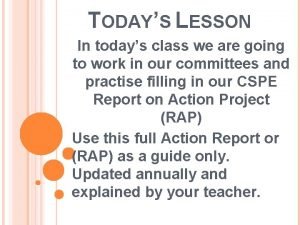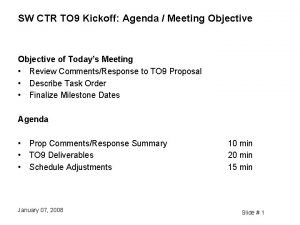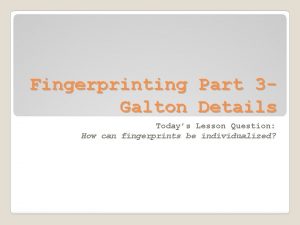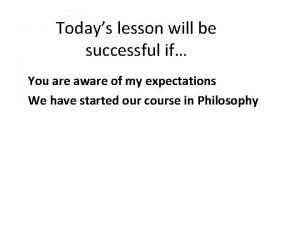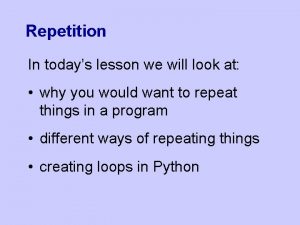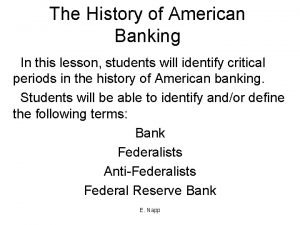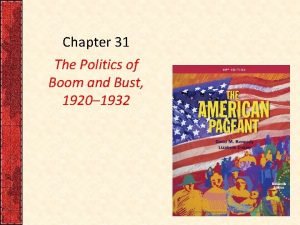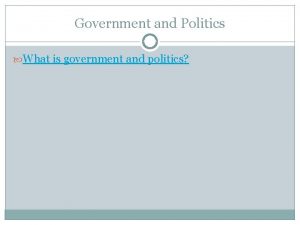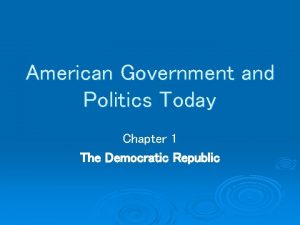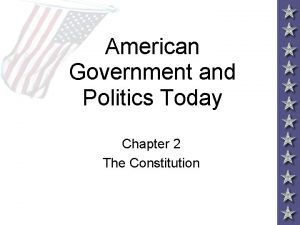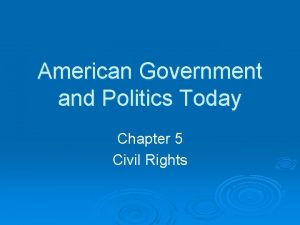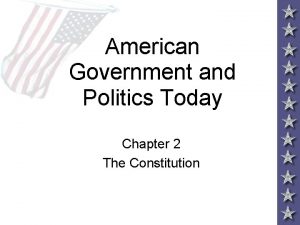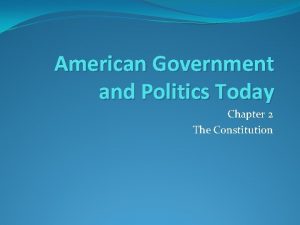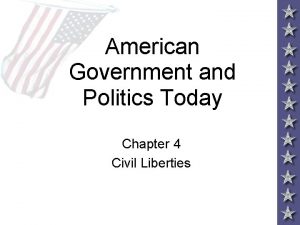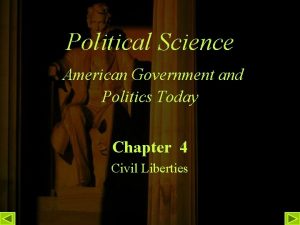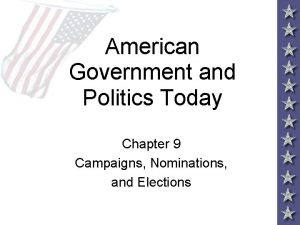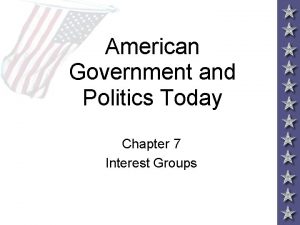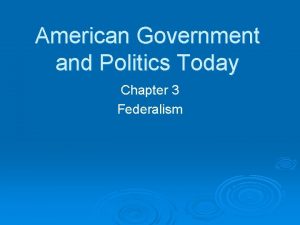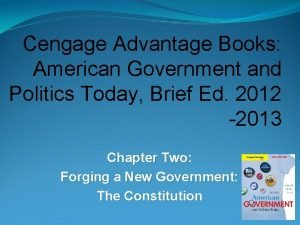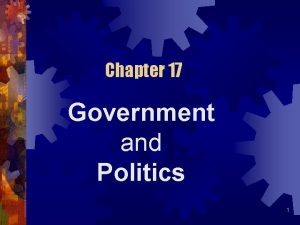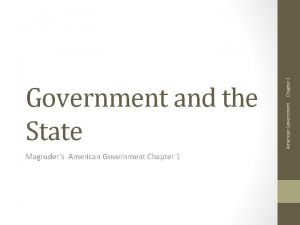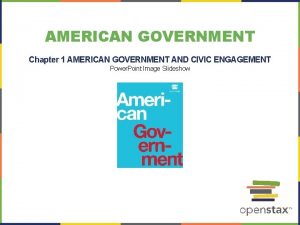American Government and Politics Today Chapter 12 The


















- Slides: 18

American Government and Politics Today Chapter 12 The Presidency

Who Can Become President? l l l Qualifications & term of office Benefits while in office (salary = $400, 00 / yr) Benefits out of office (lifetime = $148, 000 / yr) Presidential Succession (est. by 25 th Amend. ) • Death of the president -VP , Sp. Of House, Pres. Pro Tempore, Sec. of State Sec. of Homeland Security

Presidential Disability -VP becomes acting Pres. under 2 conditions: (1) if the Pres. informs Congress of an inability to perform his/her duties, (2) if the VP & majority of the cabinet informs Congress of the Pres. ’s inability to perform his/ her duties

The Process of Becoming President l l l Nomination of one of the two major parties Majority of the votes cast in the Electoral College If no candidate receives a majority of the electoral votes, the House will select the President Election : Tues. after the 1 st Mon. in Nov. every 4 yrs Inauguration noon Jan. 20 th.

The Many Roles of the President l l l Head of State Chief Executive • The Powers of Appointment and Removal • The Power to Grant Reprieves and Pardons Commander-in-Chief • Wartime Powers • War Powers Resolution

l Chief Diplomat • Diplomatic Recognition • Proposal and Ratification of Treaties • Executive Agreements

The Many Roles of the President (cont. ) l Chief Legislator • Getting Legislation Passed • Saying No to Legislation • The Line-Item Veto • Congress’ power to override Presidential vetoes

l Other Presidential Powers • Powers that Congress has bestowed on the president by statute (statutory powers) and those that are considered inherent powers. • Inherent powers are those powers the head of government needs to fulfill his duties, as prescribed vaguely in the Constitution.

The President As Party Chief and Superpolitician l l The President as Chief of Party Constituencies and Public Approval • Presidential constituencies • Public approval • “Going Public. ” When the president presents an idea to Congress, he may also “go public” in an attempt to generate popular support for his proposal.

Public Popularity of Modern Presidents

The Special Uses of Presidential Power Emergency Powers l. Executive Orders • Executive order, a rule or regulation issued by the president that has the effect of law. Executive orders can implement and give administrative effect to provisions in the Constitution, to treaties, and to statutes. l

l • Federal Register, a publication of the U. S. government that prints executive orders, rules, and regulations. Executive Privilege • United States v. Nixon--limiting executive privilege • Clinton’s Attempted Use of Executive Privilege

Abuses of Executive Power and Impeachment Article I, Section 2, gives the House the sole power of impeachment. l. If a majority of the members of the House vote to impeach an officer of the United States, the Senate will conduct a trial. l. If two-thirds of the Senators vote for conviction the officer is removed from office. l

l l The concept of impeachment is important because without this power there would be little that could be done to control criminal behavior by a top leader. On the other hand, this power could be abused and lead to politically motivated impeachments.

Ø Ø Ø Ø Secretary of State Secretary of the Treasury Secretary of Defense Attorney General Secretary of the Interior Secretary of Agriculture Secretary of Commerce Secretary of Labor Secretary of Health and Human Services Secretary of Housing and Urban Development Secretary of Transportation Secretary of Energy Secretary of Education Secretary of Veterans Affairs Secretary of Homeland Security

Line of Succession to the Presidency of the United States

The Executive Organization l l The Cabinet • The Members of the Cabinet • The Kitchen Cabinet • Presidential Use of Cabinets The Executive Office of the President • The White House Office • The Office of Management and Budget • The National Security Council

The Vice President l l The Vice President’s Job • Strengthening the Ticket • Supporting the President When the Vice Presidency Becomes Vacant
 Chapter 8 lesson 5 african american culture and politics
Chapter 8 lesson 5 african american culture and politics Chapter 20 whose government
Chapter 20 whose government American government unit 1 study guide
American government unit 1 study guide The nature of power politics and government
The nature of power politics and government Chapter 2 american government
Chapter 2 american government Origins of american government vocabulary
Origins of american government vocabulary Chapter 2 origins of american government answer key
Chapter 2 origins of american government answer key Chapter 2 origins of american government worksheet answers
Chapter 2 origins of american government worksheet answers Chapter 2 lesson 1 government in colonial america
Chapter 2 lesson 1 government in colonial america Chapter 2 origins of american government
Chapter 2 origins of american government Chapter 4 federalism answer key
Chapter 4 federalism answer key For today's meeting
For today's meeting In today's class
In today's class Proposal kickoff meeting agenda
Proposal kickoff meeting agenda Today lesson or today's lesson
Today lesson or today's lesson Today's lesson or today lesson
Today's lesson or today lesson Example of repitition
Example of repitition Lesson 2: the history of american banking and banking today
Lesson 2: the history of american banking and banking today Chapter 31 the politics of boom and bust
Chapter 31 the politics of boom and bust
